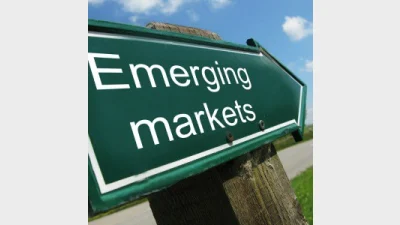EM corporate debt offers growth opportunities



Emerging market (EM) corporate debt, which has experienced strong growth over the past few years, will continue to offer investors growth opportunities despite stretched valuations, according to Eaton Vance.
The sector grew 146 per cent in cumulative issuances to $2.5 trillion since January 2013, which represented “new and unique dollar-denominated asset class, at the intersection of EM sovereign debt managers, US corporate debt managers, and global high-yield managers”.
According to the firm, there were a number of smaller and not as well understood companies that existed within the sector, overlooked by analysts, which would continue to offer pockets of value and opportunities.
However, spreads, credit fundamentals and technical factors varied by region, with Latin America, Eastern Europe and African companies offering far more spread than Asian and Middle Eastern credits.
Additionally, according to the firm, although the economic growth in EM remained above developed market countries, local capital markets and banks were not deep enough to finance the capital expenditures needed to supply the growing demand. This meant that the EM corporate asset class would continue to play a role in financing this development.
“EM corporate debt represents an exciting area of growth opportunities for the future, but current valuations, taken as a whole, are stretched,” the report says. “Pockets of value still exist in different regions, but identifying them requires careful fundamental analysis and due diligence.”
Recommended for you
A new funds distribution business has launched in Australia, seeking to bring institutional offerings to the wholesale market and led by co-founder of Jamieson Coote Bonds.
Higher interest rates could be on the cards for 2026 after monthly CPI inflation for October showed an increase of 3.8 per cent.
Global actively managed ETF assets hit a record high in October, according to independent research and consultancy firm ETFGI, breaking the record set the previous month.
Federation Asset Management has appointed an investment director and head of responsible investments to support ESG integration strategy across the firm.











